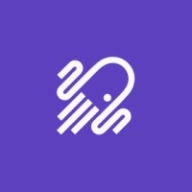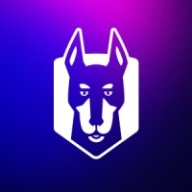

Acunetix and Snyk are prominent competitors in the vulnerability scanning and application security market. Snyk has the upper hand due to its developer-friendly interface and seamless integration with popular development tools.
Features: Acunetix offers robust vulnerability scanning with integration capabilities and supports both standalone and cloud deployments. It features a centralized dashboard and automated solutions for application security. Snyk focuses on ease of integration with developer tools, including IDEs and CI/CD pipelines, and provides a comprehensive vulnerability database, container security features, and actionable advice for mitigating risks.
Room for Improvement: Acunetix could improve its speed of scans and reduce false positives. Better reporting and flexible scanning options are also needed. Snyk requires broader language support, enhanced reporting, and improved notification systems to avoid overwhelming users with alerts. Addressing false positives would benefit both products.
Ease of Deployment and Customer Service: Acunetix offers strong on-premises deployment options and consistent support, although response times may vary. Snyk excels in cloud deployment ease and targets developer efficiency, though it could enhance self-service options for diverse team requirements.
Pricing and ROI: Acunetix's pricing is perceived as high, especially with recent licensing changes, yet deemed worthy by larger organizations for its comprehensive scanning tools. Snyk's competitive pricing, scalability, and value make it an attractive investment, supporting strong security ROI by catering to organizational needs efficiently.
It saves a significant amount of time by covering attack surfaces.
I have seen a return on investment, as Acunetix helps reduce the man-days and effort needed for scanning bulk applications through automated assessments.
I have seen a return on investment with Acunetix, including time saved and cost reduction, because it provides us threats on our web application servers.
I can see that Snyk saves the costs of hiring security developers for vulnerability scanning and security checks, as that responsibility is now managed by Snyk.
For high-severity issues, they reach out within two to three hours, and for critical issues, a response is received within 15 minutes.
The technical support from Invicti is very good and fast.
Support staff not being familiar with the problem.
Our long-standing association has ensured smooth communication, resulting in favorable support experiences and satisfactory issue resolution.
Their response time aligns with their SLA commitments.
We could understand the implementation of the product and other features without the need for human interaction.
Acunetix can handle increasing workloads and more applications easily.
Acunetix's scalability for my growing needs is great; it is a very scalable product compared to others.
Snyk allows for scaling across large organizations, accommodating tens of thousands of applications and over 60,000 repositories.
Snyk is very scalable and can handle my organization's growth and changing needs.
I did not need to reach customer support because the product is very stable.
The main concern is related to false positives; Acunetix needs to work on identifying valid and invalid findings.
Acunetix should have better integration with newer tools such as GitHub and Azure DevOps.
I believe Acunetix can improve customer support, as the dedicated support staff are often unfamiliar with problems and troubleshooting, leading to communication gaps that delay issue resolution.
It lacks the ability to select branches on its Web UI, forcing users to rely on CLI or CI/CD for that functionality.
The inclusion of AI to remove false positives would be beneficial.
As we are moving toward GenAI, we expect Snyk to leverage AI features to improve code scanning findings.
The pricing cost is affordable for small and mid-sized organizations, and when compared to Checkmarx, it is significantly affordable, as Checkmarx is quite expensive.
We secured a special licensing model for penetration testing companies, which is cost-effective.
The pricing of Acunetix is pretty expensive and could be improved.
Snyk is recognized as the cheapest option we have evaluated.
After negotiations, we received a special package with a good price point.
Snyk is less expensive.
Its most valuable role is in enhancing security by identifying potential vulnerabilities efficiently.
The solution is excellent at detecting SQL injection and cross-site scripting vulnerabilities.
The best feature Acunetix offers is the centralized dashboard and the quality of reports it generates, which includes various options for selecting reports and developer options for directly sharing the reports with developers.
Our integration of Snyk into GitHub allows us to automatically scan codebases and identify issues, which has improved efficiency.
Snyk helps detect vulnerabilities before code moves to production, allowing for integration with DevOps and providing a shift-left advantage by identifying and fixing bugs before deployment.
Snyk has positively impacted my organization by improving the security posture across all software repositories, resulting in fewer critical vulnerabilities, more confidence in overall product security, and faster security compliance for project clients.
| Product | Market Share (%) |
|---|---|
| Snyk | 5.6% |
| Acunetix | 2.1% |
| Other | 92.3% |


| Company Size | Count |
|---|---|
| Small Business | 15 |
| Midsize Enterprise | 7 |
| Large Enterprise | 17 |
| Company Size | Count |
|---|---|
| Small Business | 21 |
| Midsize Enterprise | 9 |
| Large Enterprise | 21 |
Acunetix Web Vulnerability Scanner is an automated web application security testing tool that audits your web applications by checking for vulnerabilities like SQL Injection, Cross site scripting, and other exploitable vulnerabilities.
Snyk excels in integrating security within the development lifecycle, providing teams with an AI Trust Platform that combines speed with security efficiency, ensuring robust AI application development.
Snyk empowers developers with AI-ready engines offering broad coverage, accuracy, and speed essential for modern development. With AI-powered visibility and security, Snyk allows proactive threat prevention and swift threat remediation. The platform supports shifts toward LLM engineering and AI code analysis, enhancing security and development productivity. Snyk collaborates with GenAI coding assistants for improved productivity and AI application threat management. Platform extensibility supports evolving standards with API access and native integrations, ensuring comprehensive and seamless security embedding in development tools.
What are Snyk's standout features?Industries leverage Snyk for security in CI/CD pipelines by automating checks for dependency vulnerabilities and managing open-source licenses. Its Docker and Kubernetes scanning capabilities enhance container security, supporting a proactive security approach. Integrations with platforms like GitHub and Azure DevOps optimize implementation across diverse software environments.
We monitor all Application Security Tools reviews to prevent fraudulent reviews and keep review quality high. We do not post reviews by company employees or direct competitors. We validate each review for authenticity via cross-reference with LinkedIn, and personal follow-up with the reviewer when necessary.